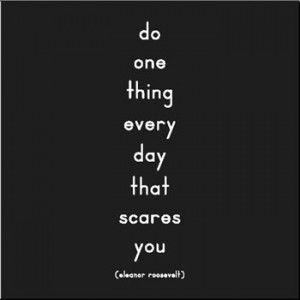No, not my fear. I came clean about my fight with OCD a long time ago and my work colleagues are nothing but supportive. At this point, my life is an open book. But for those who are at the other end of the spectrum, I came across an article that might help.
Mood music:
http://youtu.be/bWsYuW9ULdU
It’s an item on About.com from Dr. Owen Kelly called “OCD and Work: Dealing With Employers.” There was a time when I lived in dread over whether or not to come clean. For one thing, there was a time when my disease was impacting my workmanship. I was a control freak in an environment where I had no control. That period of my life is best captured in a post called “One Of My Biggest Regrets.”
But that was long before I got the treatment I needed. Through years of extensive therapy, medication and tackling other disorders, I’m at a point of no return. I may backslide from time to time. I do, in fact. But there’s no going back to the insanity of 2000-2006. I’ve simply learned too much.
But for those just beginning to deal with their demons, the question of what to do about work is a big one — maybe even the biggest. You want to get well and do so in an honest way, but how many times have we heard about workplace discrimination? I hear about it all the time.
Dr. Kelly’s article is an excellent first step in knowing what to do.
He writes:
—
Choosing to disclose that you have OCD to a potential or current employer can be terrifying. People in this position often:
- wonder if their potential or current employer will be supportive, reject them or even know or understand what OCD is
- fear being passed over, fired or forced out through attrition
- worry what people around the office will think
- worry that they’ll regret their decision
- fear being blacklisted within the industry they work
- fear not being trusted with important tasks or responsibilities
It is important to know that if you are in this position, there is no right answer and that you need to weigh this decision for yourself.
—
The best part of the article is when he gets into what you should do IF YOU DECIDE TO COME CLEAN.
He writes:
—
If you decide that benefits outweigh the risks and you decide to disclose that you have OCD to a prospective or current employer, it will be up to you to make sure that your employer understands the nature and severity of your symptoms. This this doesn’t mean that you need to tell your boss everything — just what she needs to know and what accommodations you might need. If your employer does not fully understand the challenges associated with OCD, or doesn’t even know what it is, it may also be helpful to educate your employer about your illness. It may even be possible to enlist your health care provider to advocate for you.
Finally, check and see if your employer has retained the services of an employee assistance program or EAP. This service may be able to assist in or facilitate disclosure of your OCD to your employer.
—
An important part of the article is near the beginning, and deals with your rights. Kelly notes that it’s illegal to discriminate against someone because of a medical condition, including OCD. A final excerpt:
—
if you are otherwise qualified for the position, you cannot be denied employment simply because you have OCD. Although the law is quite clear on this, the actual experience of prospective and current employees with OCD can unfortunately be quite different.
However unfair, there is actually quite a bit of incentive for employers to terminate or pass on hiring someone who they know has a chronic illness — mental or physical. On average, their health costs will be higher; they will be absent more days; and they may even have to go on long-term disability leave — all of which impacts the bottom line.
Although it is illegal to terminate someone on the basis of a medical condition, there are many ways that employers can accomplish this indirectly. For example, the employer can give the employee progressively more undesirable tasks until to the employee decides to leave.
—
This article is something I wish I had back in the day. It’s probably the best direction I’ve seen anyone give people facing the question of disclosure.
I hope this helps. Good luck.






